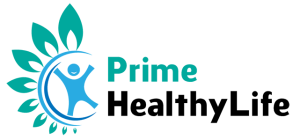Heart is the most important organ of our body which integrates the most important flow called blood circulation. Many people are facing problems related to blood flow these days. Circulation problems can be caused by inactivity, bad dietary habits, and a family history of heart or vascular illness.
The vascular expert should be consulted if you notice cold extremities, leg edema, or foot sores that take a long time to heal.
How to increase blood flow in your body?
Go for a walk every day.
It’s good for both the arteries and veins to go for a walk. Dr. Misty Humphries is a board-certified vascular surgeon in Sacramento, California, and an associate professor of vascular surgery at the University of California at Davis. “When patients walk, the arterioles widen, which increases blood flow to every part of the body.” Walking for 30 minutes three times a week is a good goal.
However, even if you’re not a fan of walking, any exercise that gets your heart pumping will enhance your circulation. At least four or five days a week, aim for 20 minutes of high-intensity cardio (think cycling, elliptical, HIIT). When you haven’t worked out in a while, you may want to talk to your physician about getting back into a regular program.
There are two advantages to taking more breaks at work: When you alternate between sitting and standing, your circulatory system doesn’t have to work as hard, resulting in reduced muscle discomfort and exhaustion; and it can keep your stress levels in check, which is essential for your health.
Taking a short walk around your house or apartment every hour will help you break the habit of sitting for long periods.
Eating many fresh fruits and vegetables is an excellent way to increase your intake.
You can avoid high blood pressure, plaque formation, and diabetes by cutting back on your sugar and fat intake. Still, Dr. Patel recommends adding more fruits and vegetables to your diet to increase nitrates and other compounds, which your body uses to produce nitric oxide. This chemical compound relaxes blood vessels and boosts blood flow.
Drink plenty of water.
It’s essential to stay hydrated because your body’s blood is nearly half water, adds Dr. Patel. Sodium retention increases when you’re dehydrated, making it more challenging for your circulatory system to accomplish its job. This results in less blood flowing through your body.
Smoking is terrible for your health, so give it up.
A buildup of plaque in your arteries is caused by smoking and can lead to peripheral arterial disease in the future (PAD). According to Dr. Hicks, PAD symptoms include leg pain while walking (claudication), pain at rest, and tissue death due to a lack of blood flow.
Plaque formation and vessel damage can be slowed by quitting smoking. Your doctor can prescribe you medicine if you need it during the process of giving up smoking.
Keep an eye on your blood pressure.
Your heart and blood arteries have to work harder and more inefficiently when high blood pressure. This causes tiny rips in the arterial walls, allowing plaque (the bad cholesterol) to build its home there. Doctor Patel adds “a cholesterol blockage can occur in any type of artery,” including the heart and the arteries in the hands and feet.
Legs should be elevated.
By preventing blood from collecting in your lower legs, elevating your legs (at or above the heart level) increases blood flow to the rest of your body. Dr. Patel believes elevating your legs relieves pressure on your veins because your veins aren’t working against gravity to return blood to your heart.


